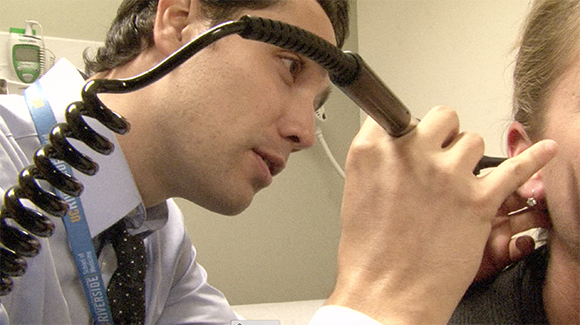
(Photo Credit: John Guenther/CA Fwd)
Sizeable shifts in the health care industry have created an education gap in the “soft skills” training that all healthcare employees need to meet industry expectations.
“The education system needs to be re-tooled to meet health care needs. Graduates have strong technical skills but need more education in “soft skills” such as interpersonal communication, teamwork, professionalism, customer service, communication, (e.g., engage the patient in dialogue), motivational interviewing, peer-to-peer communication, strong work ethic, time management, and the ability to function independently.”
-Impact of the 2010 Affordable Care Act on the California Health Care Labor Force, November 2015, UCSF
This is the “ask” from the healthcare providers to workforce educators. They know that soft skills are central to patient-centered care regardless of an employee’s position within healthcare. The significance of soft skills is found in the Joint Commission’s 2015 report to be among the most frequent root causes of sentinel events. This is grounds for concern because the soft skills competency levels of many healthcare employees do not meet industry expectations.
“California employers say loudly and clearly that soft skills are important. It doesn't matter what industry,” said Van Ton-Quinlivan, vice chancellor for workforce and economic development for the California Community Colleges and the architect of the Strong Workforce Program.
The lack of soft skills is further compounded by the transitions resulting from the Affordable Care Act and the increased use of technology in the delivery of health care.
The Health Workforce Initiative (HWI), the Statewide Sector Navigator and the Regional Deputy Sector Navigators have recognized this need and subsequently wrote and were awarded a grant from the California Community College Chancellor’s Office, in part to develop soft skills training programs for incumbent healthcare workers.
The result comprehensive training toolkit Hi-Touch Healthcare: Critical Six Soft Skills includes the following competency areas: Communication Competency, Workplace Ethics and Professionalism, Team Building and Collaboration, Effective Problem Solving, Embracing Diversity, and Demonstrating Compassion.
The Hi-Touch Healthcare: Critical Six Soft Skills training provides the healthcare industry with the background and tools needed to educate employees at all levels of healthcare organizations. The two overarching goals of the toolkit are:
- Provide the requisite soft skills background and knowledge for novice and experienced educators/trainers to be well-informed and well-prepared in order to provide soft skills training to incumbent healthcare employees.
- Enhance the effective and efficient delivery of health care by incumbent healthcare workers through (re)training with the Hi-Touch Healthcare: Critical Six Soft Skills modules leading to continuous quality improvement.
The training is divided into six competency domains with corresponding Grab-N-Go subordinate independent training modules. The modules allow the trainer to implement as thorough and detailed training as time allows, or to simply use one or two of the many activities—a la carte style.
The convenience of the design allows trainers to pick and choose soft skills topics from among the domains and again to pick and choose specific activities within each independent module.
When hospital managers were asked how they might use this information, the response was enthusiastic.
“We can see this as a tool for our boards, our leadership and our managers,” one manager said. “It can be used in many settings and it is needed now!”
“The work that has been done in the health care sector responds to what employers ask of their education partners,” said Ton-Quinlivan. “We are most proud to have invested in this effort that has been so well received by the healthcare community.”
The six competency domains are intended primarily for the trainers to use as a way to identify the training needs of their organization.
Each independent training module includes a background rationale and an explanation of the need and/or problem that is to be addressed by the soft skills training and the intended outcomes. Trainer preparation information is included in two documents: the individual training documentation and the PowerPoint presentation with associated notes. Each document, as appropriate, includes detailed explanations and procedures for the trainer. See for yourself – visit the HWI website http://ca-hwi.org/ and click on Hi-Touch Healthcare: The Critical Six Soft Skills.
Linda Zorn is the Sector Navigator for the Health Workforce Initiative and be reached via email : ZornLi@butte.edu

